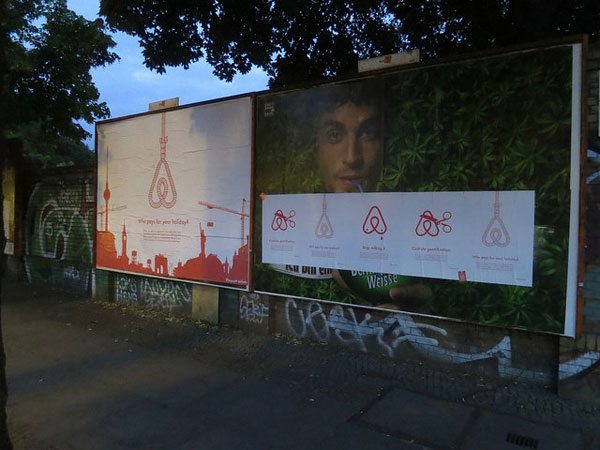
May 3, 2018; New York Times
So, you want to visit New York City, but hotel prices are too high. A decade ago, unless a friend could put you up for a night or two, you might have been out of luck. But by 2015, there were over 43,000 Airbnb units to choose from—pretty significant given that hotel capacity in New York City that year fell just shy of 109,000 rooms. More places to stay, plus extra income for the person who rents out the flat. What’s not to like?
Well, as Luis Ferré-Sadurní writes in the New York Times, for city residents, there are some definite downsides. These show up in the form of higher rents and lower apartment unit availability.
“Airbnb’s growing influence caused rents to increase significantly in tourist areas and gentrifying neighborhoods in Manhattan and Brooklyn, where the majority of the company’s rentals are concentrated,” writes Ferré-Sadurní. Such is the core finding of Comptroller Scott Stringer’s report.
“For years, New Yorkers have felt the burden of rents that go nowhere but up, and Airbnb is one reason why,” says Stringer. “It’s just simply supply and demand. Fewer apartments to rent means higher prices, and that’s the Airbnb effect.” All told the report finds that:
Sign up for our free newsletters
Subscribe to NPQ's newsletters to have our top stories delivered directly to your inbox.
By signing up, you agree to our privacy policy and terms of use, and to receive messages from NPQ and our partners.
- For each one percent of all residential units in a neighborhood listed on Airbnb, rental rates in that neighborhood went up by 1.58 percent.
- Between 2009 and 2016, approximately 9.2 percent of the citywide increase in rental rates can be attributed to Airbnb.
- Airbnb listings were heavily concentrated in parts of Manhattan and Brooklyn and had a greater impact on these neighborhoods. Approximately 20 percent of the increase in rental rates was due to Airbnb listings in midtown and lower Manhattan, including neighborhood clusters such as Chelsea, Clinton, and Midtown Business District; Murray Hill, Gramercy, and Stuyvesant Town; Chinatown and the Lower East Side; Battery Park City, Greenwich Village, and Soho; as well as parts of Brooklyn, including Greenpoint and Williamsburg.
- In aggregate, New York City renters had to pay an additional $616 million in 2016 due to price pressures created by Airbnb, with half of the increase concentrated in the neighborhoods highlighted above.
“New York City,” Ferré-Sadurní points out, is “the company’s largest market in the United States.” He adds that, “The comptroller’s report shed light on the clash of the so-called sharing economy with city neighborhoods struggling to preserve their stock of affordable housing and rein in skyrocketing rents.”
According to Andrew Kalloch, a policy manager at Airbnb, most New Yorkers “use Airbnb as a source of extra income to make ends meet and…entire apartments are rented for a median of 60 nights a year.” However, Ferré-Sadurní notes that, “Airbnb has long been scrutinized by officials because some landlords use Airbnb to effectively run illegal hotels in residential buildings.”
Also, Ferré-Sadurní adds, “some New York tenants use the platform to rent spare bedrooms to travelers year-round, often in violation of housing rules or without the permission of their landlords.”
The city comptroller is hardly the first to notice the problem. Indeed, the New York Times has reported before on the complains of tenant advocacy groups, many of whom blame Airbnb for displacing low-income residents. “It really isn’t a good idea to turn our residential housing into illegal hotels so that a $30 billion company can get their IPO,” says Tom Cayler, a member of the West Side Neighborhood Alliance, a tenant coalition that advocates to preserve affordable housing.
Ferré-Sadurni notes that, “In 2016, Gov. Andrew M. Cuomo signed a bill that provides fines of up to $7,500 for listing apartments that violate city housing rules.” For his part, Kalloch says Airbnb welcomes regulations that bar the conversion of apartments into full-time, quasi-hotels. The number of Airbnb units in New York City, according to the comptroller report, fell from the 2015 peak level of 43,144 units to 36,615 units in 2017, suggesting that tougher city regulations have had some effect. Kalloch adds that, “Airbnb is supporting legislation in Albany that would provide for rigorous enforcement against illegal hotel operators, among other things.” Similar challenges are being addressed in Boston, where this week, Mayor Martin J. Walsh proposed new regulations targeting Airbnb.—Steve Dubb













